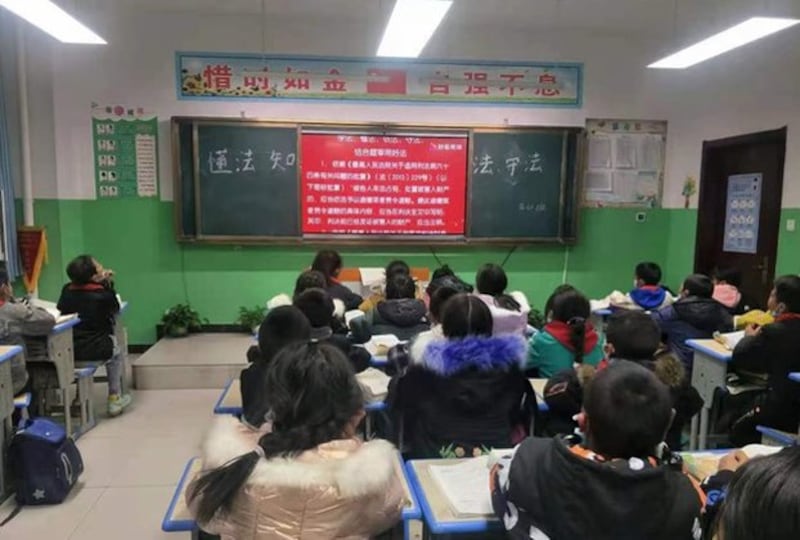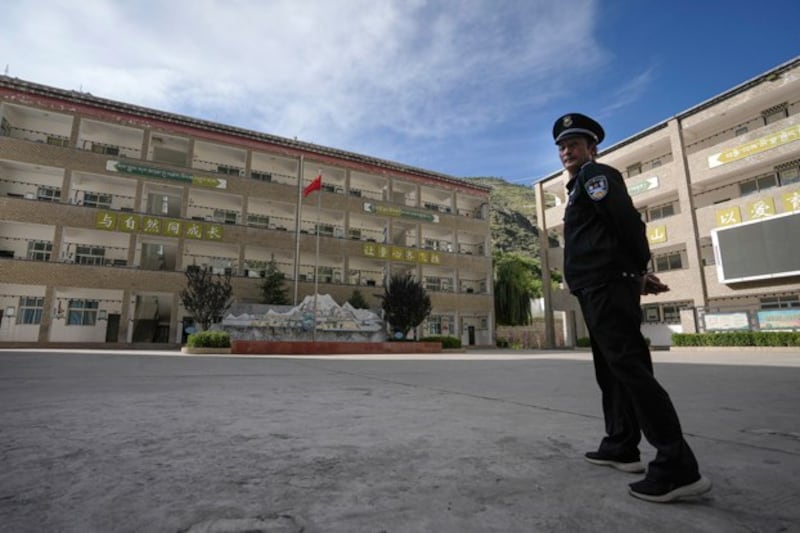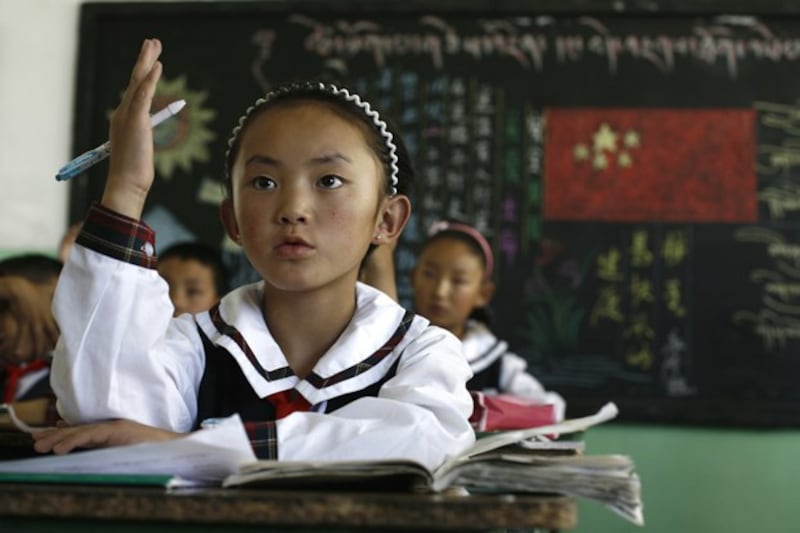Going door-to-door, Chinese authorities are stepping up efforts to enforce a ban on Tibetan children from taking private classes and participating in religious activities during the winter break from school, three sources from inside Tibet told Radio Free Asia.
Authorities are conducting random checks in “residential areas and commercial establishments,” the sources said.
In 2021, authorities in various Tibetan-populated provinces began prohibiting Tibetan children from taking informal Tibetan language classes or workshops during their winter holidays, a move that local Tibetans and parents of affected children said would negatively impact the children's connection to their native language.
Earlier this month, the Chinese Education Department issued a notice repeating this ban, said the sources who requested anonymity for safety reasons. The notice orders local authorities to intensify their supervision and investigation of supplementary lessons for Tibetan children and to carry out strict disciplinary action against those violating the rule.
Investigations should be carried out in residential areas and commercial establishments at various times of day and night, said the notice to the local authorities.

Local authorities in Tibet's capital Lhasa, Labrang Monastery in Gansu province and Yushu Tibetan Autonomous Prefecture in Qinghai province have taken measures to ensure the strict enforcement of the orders from the Education Department, sources from each of these regions told RFA.
On Nov. 30, 2023, Lhasa city authorities issued a notice announcing the winter break for all three levels of schools from Dec. 30 until Feb. 27-29, 2024. The notice detailed the kind of education parents could give their children during the break, as well as the work that teachers would need to do during the holiday period.
No religious education
The notice, as seen by RFA, said parents should not engage in religious education of school children and “must make sure the children are completely free from the influence of religion.”
Parents must also ensure Tibetan children “voluntarily distance themselves from places of worship” and that they do not participate in any religious activities, the notice said.
“In addition to random door-to-door investigations, local authorities are also carrying out surveys of the Tibetan children to find out what subjects are being taught to them in their out-of-school courses and where,” said the source at Yushu Tibetan Autonomous Prefecture in southwestern China’s Qinghai province.
The notice from the Education Department said Tibetan children can participate in supplementary classes and workshops taught only by government-authorized individuals and organizations and on subjects approved by the authorities, the sources said.

The notice also includes orders emphasizing the continued ban on Tibetan children’s participation in religious activities, they added.
“In the past, there was a strong tradition of providing supplementary, private tuitions to Tibetan children in the fields of Tibetan grammar, religion, math, and storytelling during their winter break,” said a source in Xiahe county-based Labrang Monastery – home to the largest number of monks outside the Tibetan Autonomous Region.
“Now, only a few Chinese government-authorized organizations and individuals who carry out political re-education programs are allowed to give [lessons] to Tibetan students.”
The same source also confirmed the stricter enforcement of the ban on the study of the Tibetan language and on Tibetan children participating in religious activities, as China tightens its grip on these practices and ramps up efforts to impose President Xi Jinping's plans for the "Sinicization of religion," or "adaptation of religions to China's socialist society."
“With the prohibition of the study of Tibetan language, both in schools and in out-of-school programs, it has now become increasingly evident that young Tibetan children have lost touch with their native language and identity, a very alarming and concerning development,” another source told RFA.
Chinese-only classes
In March 2022, Radio Free Asia reported that Chinese authorities were pushing forward with policies to supplant Tibetan language education in schools with all classes taught only in Chinese, a move that critics have said is aimed at weakening Tibetan children's connection to their national identity and traditional language and culture.
A year earlier, Santa Fe, New Mexico-based Tibet Action Institute released a report saying that hundreds of thousands of Tibetan children between the ages of 4 and 18 were being separated from their families and forced to live in state-run boarding schools, where "teachers only speak in Mandarin and conduct all school curriculum in Mandarin, including nursery rhymes and bedtime stories."

Rights activists have decried the move to completely assimilate the Tibetan children into the Chinese majority and raised fears over its likely long-term implications on the very survival of the Tibetan identity.
According to a September 2023 RFA Investigative report, returning members of the Tibetan diaspora to Chinese-occupied Tibet confirmed they are already seeing the effects of this move in the way their young relatives – who attend boarding schools where the courses are taught only in Mandarin – interact with each other.
Translated by Tenzin Pema for RFA Tibetan. Edited by Roseanne Gerin and Malcolm Foster.
